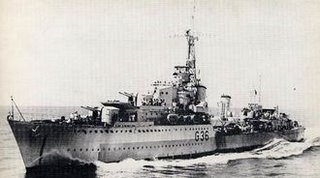Names!

This is coolbert:
Here is a interesting article from the web site of Dr. David Yeagley.
"Back in the 1930s, the warrior spirit was still strong in Indians and white men alike. At that time, the Oceti Sakowin Hunkpapa Sioux elders of Standing Rock honored the University of North Dakota by giving them permission to use the name 'Fighting Sioux' for their sports teams."
"Today, the leftists tell us that the 'Fighting Sioux' name is an insult to Indians, and we must demand that the university change it. I guess that goes for the Apache and Comanche helicopters too [see below]."
"Have you ever noticed how cowboy-and-Indian movies always focus on the same tribes? It’s either the Sioux, the Apaches or the Comanches. White people remember those tribes, because they fought hard and were the last to surrender."
"Why does the U.S. military [Army] have helicopters named "Apache" and "Comanche" – but none that are named "Arikara" or "Ojibwa?" They name their weapons systems after the fiercest tribes, because they want some of that fierceness to rub off."
"They name their weapons systems after the fiercest tribes, because they want some of that fierceness to rub off."
NOT ONLY the American military does this sort of thing.
The British had an entire class of warships called the "Tribal Class".
A class of ships that was named for tribes from the world-over.
Named after such tribes as:
Afridi - - Had never heard of these folks before. A tough and martial Pathan tribe from what is now Pakistan. Live on the border between Pak and Afghan. American troops are encountering them now? The British respected the Pathan warrior for their courage and fighting ability.
Ashanti - - Lord Woolsley became a Field Marshal by his command of British troops during the Ashanti War. A tough fight with African warriors.
Bedouin - - Arabic tribesmen of the desert. Men and women both are taught fighting skills and weapons. Esteemed by the British [Lawrence of Arabia for one].
Cossack - - A tribe that has totally adopted and incorporated the warrior ethic into their culture. Continues to do so even to the present day.
Eskimo - - I do not think the Eskimo have a warrior tradition. The opposite I think?
Gurkha - - Need anything be said here??!!
Maori - - The warrior people of New Zealand. Fierce fighters who do an intimidating dance prior to battle.
Mashona - - This might be the Shona nation of what is now called Zimbabwe. NOT sure of their warrior tradition.
Matabele - - An offshoot of the Zulu nation. Bravely resisted the advance of the Pioneer column into what became Rhodesia.
Mohawk - - A part of the Iroquois nation. The Iroquois were fierce warriors that put up tremendous resistance to the first American "white" settlers.
Nubian - - Black Africans from the south of the Sudan. NOT sure about these folks.
Punjabi - - A tribal group from which a diverse population has sprung. Including the Sikhs. Lots of martial tradition here. Modern too. The Pakistani military is heavily Punjabi.
Sikh - - A society that like the Cossacks has totally embraced the warrior ethic as part of their culture.
Somali - - From the land of "Black Hawk Down". Also the place where Richard Francis Burton got either a sword or spear thrust through the cheek.
Tartar - - Descendants of the Golden Horde. From the land of the Mongols. Honored for their bravery and ruthlessness.
Zulu - - The world famous Zulu. The British have not forgotten Isandhlwana and their defeat at the hands of the Zulu. A gallant warrior enemy [Zulu] is recognized and honored.
This is so much like my previous blog entry [5/21/2006] from some ago now.
You want to operate a tank called the "Lee", "Grant", Sherman", "Stuart" "Patton". NOT a "Mathilda" [British].
You want to fly a fighter aircraft called a "Spitfire", "Mustang", "Thunderbolt", "Hurricane", "Typhoon". NOT a "Firefly" [British again].
[the Firefly was made by a company called Fairey.]
With the Tribal class, the British seem to have caught on big time with regard to naming weapons systems!!
coolbert.

2 Comments:
The use of tribal names to convey fierceness points to something primordial and probably universal.
Steven Pinker has a list of human universals, so far found by anthropologists.
I think they missed several, though.
Each tribe and nation has some displays which express a message of this kind:
My people are healthy!
My people are warlike!
When one of these is de-emphasized, the other one picks up extra play, e.g. the Dutch and Swedes saying that their people are the world's tallest.
The military parades with arms, public drills, and similar displays have this function for nations, I assume.
The tribes use very direct expressions of fierceness. None of them want to be called something like 'the gentle Tasaday', as a fictitious tribe in the Philippines were tagged.
1:22 AM
The list is from the appendix of The Blank Slate, and is credited to Donald E. Brown. It does not mention war, but it does include weapons, territoriality, conflict, 'in-group, biases in favor of', and universals which imply that aggression and organized war activities are universal.
1:52 AM
Post a Comment
Subscribe to Post Comments [Atom]
<< Home